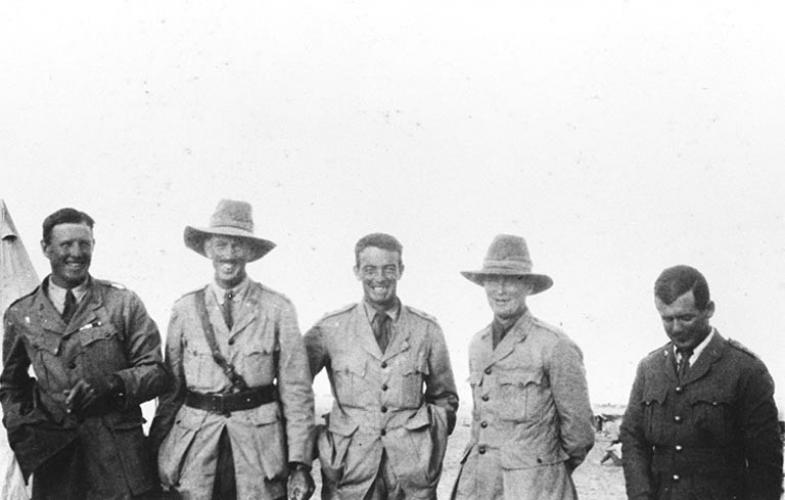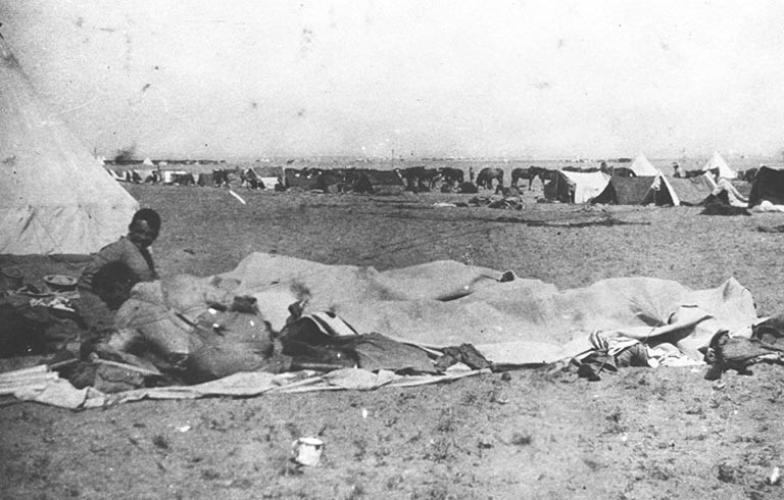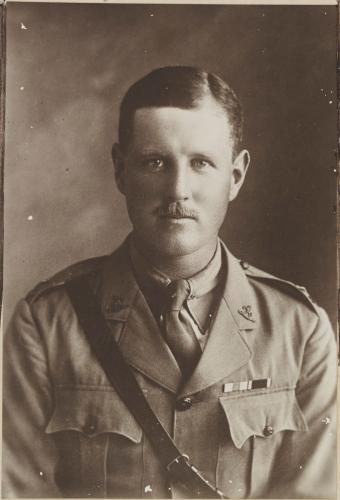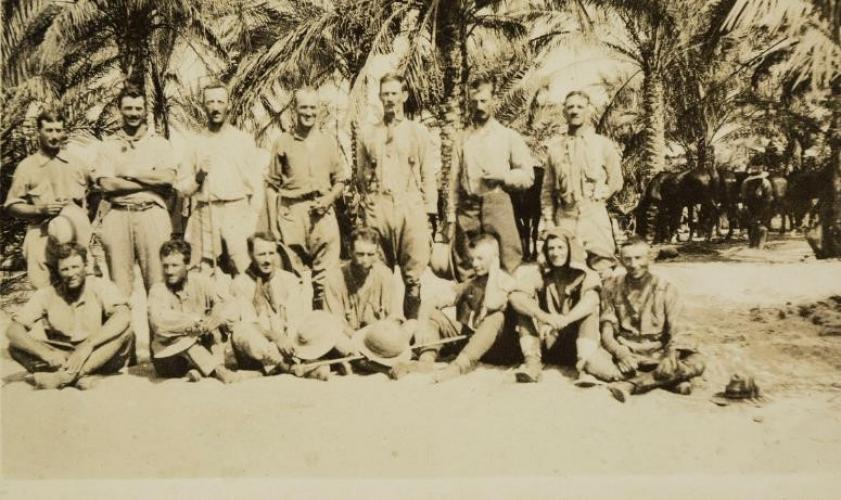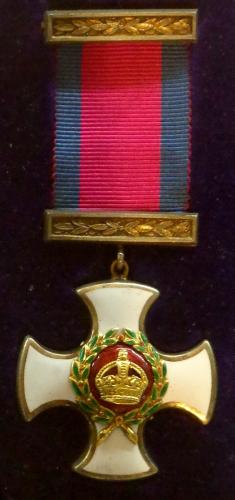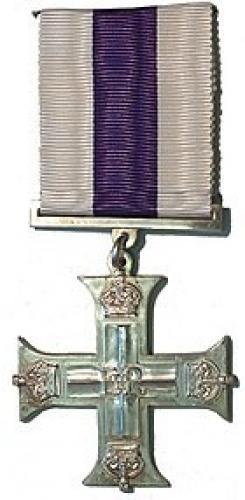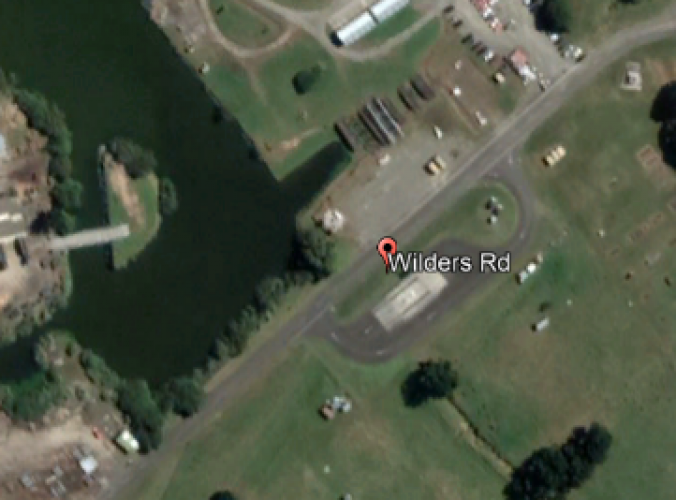284 Wilders Road Linton Military Camp Palmerston North, aerial view 2018
Reason for the name
This street in Linton Camp is named in honour of Maj General Allan Standish Wilder DSO, MC, m.i.d., Order of the White Eagle (Serb) who served in World War 1 and World War 2. Most streets within NZDF Camps and Bases are named in honour of prominent people, battles, campaigns, ships, aircraft and places creating a rich history of our military service.
Online information reveals there are two versions of Maj Gen Wilder’s Christian name; Alan and Allan. Information relating to his service is covered with both spellings. Maj Gen Wilder was born in Te Hau, Waipukurau NZ on 24 May 1889. He was a sheep farmer before enlistment and went on to serve with honour in both world wars.
Author: The Poppy Places Trust
Awards
Major Wilder was awarded the Distinguished Service Order (DSO) during World War 1 and the award was published on 8 March 1919 in the London Gazette.
The DSO was instituted on 6 September 1886 by Queen Victoria in a Royal Warrant published in The London Gazette on 9 November, the first DSOs awarded were dated 25 November 1886. The order was established to reward individual instances of meritorious or distinguished service in war. It was a military order, until recently for officers only, and typically awarded to officers ranked major (or equivalent) or higher, with awards to ranks below this usually for a high degree of gallantry, just short of deserving the Victoria Cross. While normally given for service under fire or under conditions equivalent to service in actual combat with the enemy, a number of awards made between 1914 and 1916 were under circumstances not under fire, often to staff officers, causing resentment among front-line officers. After 1 January 1917, commanders in the field were instructed to recommend this award only for those serving under fire.
From 1916, ribbon bars could be authorised for subsequent awards of the DSO, worn on the ribbon of the original award. In 1942, the award was extended to officers of the Merchant Navy who had performed acts of gallantry while under enemy attack. A requirement that the order could be given only to someone mentioned in despatches was removed in 1943.
He was also awarded the Military Cross (MC) The Military Cross is the third-level military decoration awarded to officers and (since 1993) other ranks of the British Armed Forces, and formerly awarded to officers of other Commonwealth countries. The MC is granted in recognition of "an act or acts of exemplary gallantry during active operations against the enemy on land" to all members of the British Armed Forces of any rank. In 1979, the Queen approved a proposal that a number of awards, including the Military Cross, could be recommended posthumously.
Major Wilder had been on Active Service since 1915 and had won his distinctions and promotions in the hardest fighting on the Western Front.
Major Wilder was Mentioned in Despatches (m.i.d), and received the Volunteer Officer's Decoration (VD)
World War Two postings indicated that his age (51 in 1940) must have been a limiting factor in his commanding a front line unit.
May 1941- Sep 1941 Commanding Officer 25th Infantry Battalion
1941– 1942 Commandant of Training Maadi Camp Egypt
Dec 1941- Jan 1942 Commanding Officer 5th Infantry Brigade
Apr 1942- Jan 1943 General Officer Commanding 5th Infantry Division
Jan 1943- Nov 1943 General Officer Commanding 1st Infantry Division
The 25th Battalion was an infantry battalion of the New Zealand Military Forces, which served during the Second World War as part of the 6th Infantry Brigade, 2nd New Zealand Division. The 25th Battalion was formed in New Zealand in 1940 and after a period of training, it, along with the rest of the 6th Brigade, embarked for the Middle East where it joined up with the 2nd New Zealand Division. Moved to Greece to help defend against a German invasion, the battalion participated in the Battle of Greece but was evacuated at the conclusion of the fighting in the country. It then fought in the North African Campaign and suffered heavy losses during Operation Crusader, when it was effectively destroyed by the 15th Panzer Division. From December 1941 to February 1942 the battalion was brought back up to strength before being transferred to Syria. It returned to Egypt in March 1942 and suffered heavy casualties again during the First Battle of El Alamein.
After the fighting in North Africa ceased in 1943, the 25th Battalion participated in the Italian Campaign, fighting in actions at Orsogna and later at Cassino. It finished the war in Trieste, and remained there to counter the presence of Yugoslav partisans that had entered the city. After the withdrawal of the partisans several weeks later, the battalion moved to Florence while its long-serving personnel began returning to New Zealand. Not required for service in the Pacific theatre of operations, the battalion was disestablished in late 1945.

